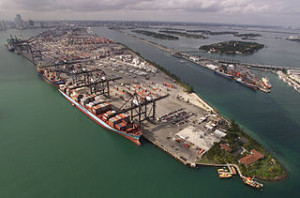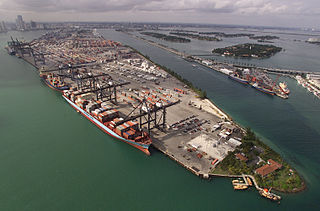 Member-carriers in the Transpacific Stabilization Agreement (TSA) announced they plan to see through their earlier advisory of general rate increases (GRIs) on the Asia-U.S. trade lanes in the next couple of months.
Member-carriers in the Transpacific Stabilization Agreement (TSA) announced they plan to see through their earlier advisory of general rate increases (GRIs) on the Asia-U.S. trade lanes in the next couple of months.
In a February 25 statement, TSA reaffirmed its March 9 GRI of US$600 per 40-foot container for all shipments, and lines have also filed a previously announced April 9 GRI in the same amount.
In justifying the rate hikes, TSA pointed to the need for shipping lines to restore service levels and repair their networks as U.S. West Coast congestion difficulties ease. It added that this requires that “overall freight revenues must rise to levels that will address higher long-term rail, truck, equipment management and cargo handling costs, as a ‘new normal’ in shoreside and inland operations grows out of recent congestion difficulties and the new longshore labor agreement.”
At the same time, the association said, forward bookings suggest that post-Lunar New Year cargo demand will resume after the week-long Asia holidays and continue to pick up pace. Carriers thus foresee incurring significant operational costs to meet increased demand after the Chinese New Year celebrations.
“Carriers are mindful that all affected parties face higher operating costs as well as lost revenue and business opportunities amid the current situation,” TSA executive administrator Brian Conrad said. “But it is also a reality that we are all not simply returning to business as usual.”
He added, “To the extent the U.S. economy is showing sustained recovery and the dollar is likely to remain strong against Asian currencies for some time, carriers need to step up their game, reverse some of the retrenchment seen since 2011 and complete the service integration necessary to fulfill scale and efficiency objective in the market. The limited improvement in freight rates to date neither addresses costs accrued since last September nor the network investment necessary through 2016 to meet customers’ needs.”
TSA is a research and discussion forum of major container shipping lines serving the trade from Asia to ports and inland points in the U.S. These carriers include APL, China Shipping Container Lines, CMA-CGM, COSCO Container Lines, Evergreen Line, Hanjin Shipping Co., Hapag-Lloyd, Hyundai Merchant Marine, Kawasaki Kisen Kaisha, Maersk Line, Mediterranean Shipping Co., Nippon Yusen Kaisha, Orient Overseas Container Line, Yangming Marine Transport, and Zim Integrated Shipping Services.
Photo: James R. Tourtellotte





